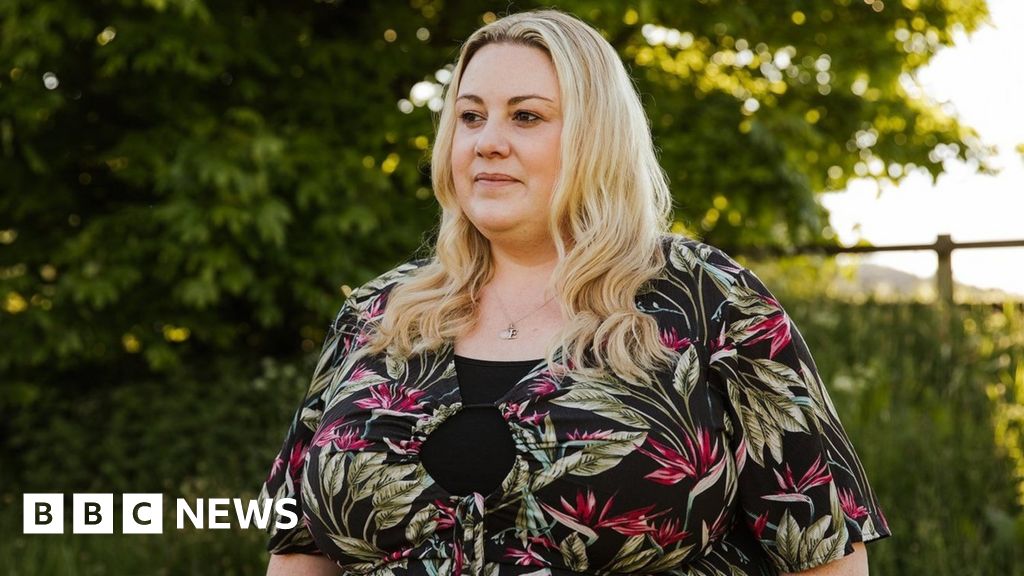
Specialist health professionals say it is time for obesity to be regarded as an illness caused by genetics, biology and how we live today.
The findings show those who are significantly overweight have a 66% higher risk of developing chronic kidney disease, compared with those of a normal weight.
Many people with obesity say not only do they have to live with prejudice and stigma, but they struggle to find treatment.
Sarah has spent most of her life trying to control her weight through diet and exercise, and says her obesity is something that she thinks about every day.
It was the start of a struggle to regulate her weight which Sarah says has remained with her to this day.
By the time she was 30, Sarah had severe obesity and was desperate to do something about it for the sake of her mental and physical health.
Shaw Somers,a consultant surgeon who specialises in weight-loss operations, has been treating people with severe obesity for many years.
He says people like Sarah, who have an inherited set of certain genes, are much more likely to develop obesity compared with those who don't.
But obesity is not just about genetics, he says.
Historically, he says, people with these genetics would have done well in a famine, but with today's plentiful, high-calorie food they will put on weight "without strong determination and support".
He lives with obesity and thinks areas like his can have a big effect on the health of those living there.
Dr Abd Tahrani, a senior lecturer in obesity medicine at the University of Birmingham, says there are a lot of people who are "biologically pre-designed to conserve energy", which is stored as fat.
Studies from GP records in the UK showed that the annual chance of achieving normal weight in people with morbid obesity is one-in-700 to one-in-1,000.
New research from a team made up of specialists from the University of Birmingham, the University Hospitals of Birmingham, and Warwick Medical School, has found that people living with obesity have a 66% higher risk of developing chronic kidney disease than those with normal body weight.
This adds to a growing body of scientific research which has found that "healthy obesity does not exist", says Professor Indranil Dasgupta, consultant nephrologist at the University Hospitals Birmingham NHS Trust, and senior author of the research paper.
Previous studies from the same team found those living with obesity without any other health conditions also have a higher risk of cardiovascular disease and stroke.
"Public perception hasn't quite understood that it's a real illness," says bariatric weight loss surgeon Shaw Somers.
Too many weight management programmes for those living with obesity begin with "moving more and eating less", which in reality is a prevention for obesity, not a cure.
"The number of people I've encountered in my 30-year career who've been able to go from morbid obesity, to normal weight, and sustain it by dieting alone - well I don't think I've ever met one.
Evidence suggests that for people like Sarah, whose bodies are hard-wired to put on and retain fat, they may put in all the work and still not get the result they badly want.
"I went through some really dark times, because I felt like a failure," says Sarah.
Psychologist Dr Denise Ratcliffe says that many people accept the narrative that they are to blame for their obesity.
So if you've got mental health problems, you're more likely to have obesity.
The NHS says bariatric surgery can achieve dramatic weight loss.
Around 6,000 people each year in England go ahead with an operation to help reduce their weight and improve their health dramatically.
It plans to increase weight management services so that more people get NHS support to lose weight.
NHS England says it is focusing on support for those who live with obesity and have other health conditions, such as type 2 diabetes and high blood pressure.
Shaw Somers carries out weight loss operations at Portsmouth Hospitals NHS Trust, and privately in London for patients without Tier 4 services in their area, and who have had to fund the operation themselves.
"Many people who struggle with severe obesity have a number of underlying illnesses, which are all harder to treat because of their obesity," he says.
Dr Tahrani says that Semaglutide was approved in the US very recently, and could lead to 15-to-17% weight loss.
In the future, he expects to see drugs that could result in 20-to-25% weight loss, which is the same outcome as bariatric surgery.
It said: "Losing weight is not easy and our world-leading obesity strategy lays out extensive action to empower people to make more informed decisions and achieve a healthier weight.".
The single mum says her self-confidence is high in all areas - apart from her weight.
But for some people living with obesity, Sarah's admission of being unhappy with her weight is at odds with their argument that it is time to reject the stigma - and the shame - and to live happily as they are.